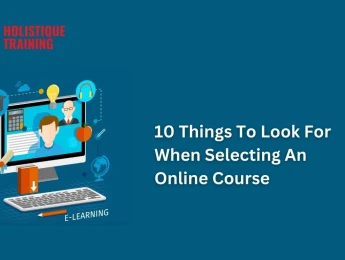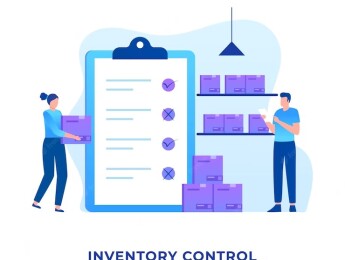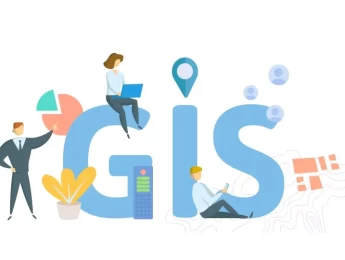- Table of Contents
- Introduction
- What is E-Learning?
- Why Has E-Learning Become So Essential?
- 1. Accessibility and Inclusivity
- 2. Flexible Learning Options
- 3. A Wider Range of Courses and Subjects
- 4. Cost-Effectiveness and Financial Savings
- 5. Immediate Access to Up-to-Date Resources
- 6. Personalised Learning Experiences
- 7. Career Advancement and Professional Development
- 8. Environmental Benefits
- 9. Global Learning Communities and Networking Opportunities
- 10. Consistent Skill Development and Lifelong Learning
- What Makes a School Suitable for Online Learning?
- 1. Strong Technological Infrastructure
- 2. Experienced and Engaged Faculty
- 3. Comprehensive Student Support Services
- 4. Interactive and Engaging Course Design
- 5. Flexible and Accessible Course Offerings
- 6. Credibility and Accreditation
- 7. Clear Communication and Prompt Feedback
- 8. Quality of Learning Materials and Resources
- 9. Opportunities for Collaboration and Networking
- 10. Proven Track Record and Positive Student Outcomes
- 10 Things to Look for When Choosing an Online Course
- 1. Accreditation and Certification
- 2. Content Quality and Relevance
- 3. Instructor Expertise and Teaching Style
- 4. Course Format: Synchronous vs. Asynchronous Learning
- 5. Flexibility and Time Commitment
- 6. Interactive Elements and Hands-On Practice
- 7. Support and Access to Resources
- 8. Cost and Financial Aid Options
- 9. Career and Skill-Building Opportunities
- 10. Reputation and Student Reviews
- How to Know Which Training Format Suits You More
- 1. Self-Motivation and Discipline
- 2. Learning Style and Preferences
- 3. Schedule Flexibility and Life Commitments
- 4. Need for Face-to-Face Interaction and Networking
- 5. Comfort with Technology and Online Platforms
- 6. Learning Environment and Study Preferences
- 7. Financial Considerations and Cost
- 8. Goals for Skill-Building and Hands-On Learning Needs
- 9. Ability to Manage Time Zones and Global Interactions
- 10. Desire for Continuous Learning and Lifelong Education
- Making the Final Decision
- Conclusion
Introduction
An online course is a pivotal decision that can shape your career, skills, and future opportunities. As the digital education landscape continues to evolve, more people are looking toward online learning as a flexible, accessible way to gain new knowledge. This guide explores the essentials of e-learning, the factors that make a program and institution suitable for virtual education, and the key elements to consider when selecting the right online course for your needs.
What is E-Learning?
E-learning, also known as distance learning, refers to educational programs conducted through digital platforms, where instructors, students, and resources come together virtually. Unlike traditional in-person education, e-learning provides a flexible, technology-driven alternative that seamlessly fits into varying lifestyles. E-learning is not limited to any particular subject area; instead, it spans various fields, from technical skills to soft skills, certifications to degree programs, and even specialised vocational training.
E-learning has grown significantly as internet access has become more widespread. For example, a staggering 96% of UK households have access to the internet, according to Statista. Today, e-learning is a cornerstone of education, offering learning opportunities to individuals regardless of their geographical location or schedule.
Why Has E-Learning Become So Essential?
E-learning has grown from an alternative educational approach to a central pillar in the modern educational landscape. It provides accessible, flexible, and often more affordable learning opportunities, aligning with the lifestyles and goals of diverse learners. In fact, 70% of students report that they find online learning more effective than traditional classroom education. The essential nature of e-learning is rooted in several key benefits that have made it invaluable for individuals, institutions, and businesses alike. Here’s a deeper look at why e-learning has become essential:
1. Accessibility and Inclusivity
E-learning is incredibly accessible, making quality education attainable for students in remote areas, those with physical limitations, and individuals from diverse backgrounds. Unlike traditional education models, where geographical barriers, high tuition fees, and physical attendance requirements can limit participation, e-learning only requires internet access. This means that people who might otherwise face challenges in attending classes—whether due to location, disabilities, or personal responsibilities—can now learn with ease. This democratisation of education fosters inclusivity, enabling people from all walks of life to pursue their educational and career goals.
2. Flexible Learning Options
One of the most prominent advantages of e-learning is the ability to study at one's own pace. Many online courses are designed to be self-paced, allowing learners to progress according to their unique schedules, needs, and learning speeds. This flexibility is invaluable for those with jobs, families, or other commitments. This means that education no longer requires pausing one's life or overextending oneself to meet the rigid demands of traditional institutions. As a result, e-learning empowers people to balance education with other areas of life, making lifelong learning possible even amid a busy schedule.
3. A Wider Range of Courses and Subjects
Online education platforms offer an immense variety of courses, from beginner-level classes to advanced certifications. For students, this means more freedom to explore niche subjects, specialised skills, and areas of interest that might not be readily available at nearby institutions. For example, you could find a course on machine learning, Latin American history, or advanced medical diagnostics—all on the same platform. This range enables learners to tailor their education based on their personal or professional interests, filling a crucial gap where local institutions may not offer the same breadth of topics.
4. Cost-Effectiveness and Financial Savings
E-learning is often more affordable than traditional classroom learning. Many online courses reduce or eliminate costs associated with physical classrooms, such as campus maintenance, printed materials, and commuting expenses. Additionally, students save money by not needing housing or dining services that are typical on college campuses. Some programs even offer free courses or financial aid, making e-learning a practical option for those on a budget. With the financial savings of e-learning, education becomes more affordable and accessible for a larger population.
5. Immediate Access to Up-to-Date Resources
In a digital learning environment, resources can be updated quickly and distributed instantly, ensuring learners get the most current information. Traditional textbooks and classroom materials often lag behind the latest industry developments. In contrast, e-learning platforms can provide real-time updates, new research findings, and emerging trends. Digital courses frequently include multimedia content, interactive elements, and instant feedback, which cater to diverse learning styles and foster a deeper, more engaging experience.
6. Personalised Learning Experiences
Online courses often incorporate adaptive learning technologies that customise the educational experience to fit each learner's unique needs. For example, many platforms use algorithms to analyse student performance and suggest tailored content, exercises, and resources that suit their learning speed and style. This personalised approach lets students comfortably focus on areas where they need improvement and progress, making learning more effective. This kind of customisation is challenging to achieve in traditional classrooms, focusing on group instruction rather than individual growth.
7. Career Advancement and Professional Development
E-learning has become crucial for professional development, allowing working adults to gain new skills, certifications, and even degrees without disrupting their careers. Many employers now encourage or require e-learning courses as part of employee development programs, recognising that digital courses are an efficient way to build relevant skills. Programs such as UND Programs provide flexible, accredited online courses that allow professionals to gain new skills and certifications without interrupting their careers, making them an ideal choice for career advancement and lifelong learning. For professionals looking to switch careers, e-learning provides a flexible and effective way to gain the necessary knowledge and credentials for their new field, often at a fraction of the time and cost associated with traditional education.
8. Environmental Benefits
The environmental benefits of e-learning are a modern-day necessity. With no need for physical buildings, transportation, and printed materials, online learning significantly reduces carbon footprints and resource consumption. E-learning eliminates daily commutes, reduces the need for on-campus housing, and often minimises the use of paper resources. Consequently, it provides an eco-friendly approach to education, aligning with the sustainability goals that are becoming increasingly important in today's society.
9. Global Learning Communities and Networking Opportunities
E-learning transcends geographical boundaries, allowing students worldwide to connect, collaborate, and learn together. Online learning communities and discussion forums allow students to engage with diverse perspectives, gain cultural insights, and build a global network. This international exposure can benefit professionals, as many industries prioritise global collaboration and cross-cultural competence. Such networking also enhances the learning experience by creating a supportive community of peers, which is especially helpful for students pursuing advanced degrees or specialised skills.
10. Consistent Skill Development and Lifelong Learning
With technology advancing at unprecedented speeds, many people are constantly updating their skills to stay relevant. E-learning offers a means to continuously develop skills throughout one’s life, fostering a culture of lifelong learning. The flexibility, diversity of subjects, and affordability of online courses enable individuals to stay informed and adept, regardless of their careers. This consistent upskilling is invaluable in today’s job market, where rapid changes demand that professionals remain adaptable and knowledgeable in their fields.
E-learning has become essential because it meets the needs of a diverse population, allowing people to learn flexibly, affordably, and sustainably. The accessibility of education, the variety of courses, and the ability to adapt learning to personal schedules have all contributed to the widespread adoption of e-learning. Additionally, e-learning fosters a culture of lifelong learning and environmental responsibility, helping individuals remain competitive and environmentally conscious in a globalised, digital world. As e-learning continues to evolve, it’s likely to remain a cornerstone of modern education, bridging gaps in knowledge and making education more inclusive and sustainable.
Feature | Online Learning | In-Person Learning |
Flexibility | Study anytime, anywhere with internet access | Set schedule; requires attending physical location |
Interaction | Primarily virtual, via chat and video calls | Face-to-face interactions with classmates, instructors |
Pace | Often self-paced, adaptable to personal schedule | Structured pace, following instructor's timeline |
Resources | Digital resources, accessible from multiple devices | Physical resources, books, and on-site tools |
Cost | Generally lower; no travel or campus fees | Higher, including potential travel and facility costs |
Table: Comparing online learning to in-person learning
What Makes a School Suitable for Online Learning?
Not all institutions are equally equipped to provide a high-quality online education experience. To ensure a successful e-learning journey, assessing whether a school or platform meets certain standards is essential. Here’s what you should look for in an e-learning provider:
1. Strong Technological Infrastructure
A school equipped for online learning must have a robust technological infrastructure to support a seamless, accessible, and flexible learning environment. This includes reliable servers, secure learning management systems (LMS), and software that enables students to easily access course materials, participate in virtual classrooms, and submit assignments without technical disruptions. Schools with well-developed online platforms provide smooth, uninterrupted access to resources, making learning more efficient and enjoyable for students. Schools that invest in user-friendly platforms, intuitive design, and easy navigation enhance the online learning experience, ensuring students can focus on their studies rather than dealing with technical issues.
2. Experienced and Engaged Faculty
Online learning requires faculty who are skilled in virtual teaching techniques, which can be quite different from in-person instruction. Instructors need to understand the nuances of digital education, including how to engage students remotely, facilitate discussions in virtual forums, and offer feedback through digital channels. Schools that prioritise faculty training for online education create a better learning experience because their instructors know how to utilise the digital tools available effectively. Additionally, experienced online instructors know how to foster a supportive virtual environment, creating a sense of community and encouraging students to participate actively, even from afar.
3. Comprehensive Student Support Services
Online learners benefit from support services similar to those available to on-campus students. Suitable online schools provide various student support services, from academic advising and career counselling to tech support and library access. Academic advisors help students select the right courses and guide them toward fulfilling their educational goals. In contrast, career counselling helps them make the most of their degree in the job market. Schools that offer 24/7 tech support help students overcome technical issues quickly, ensuring they don’t fall behind. This comprehensive support network creates a well-rounded educational experience and makes students feel like valued members of the institution.
4. Interactive and Engaging Course Design
Effective online courses are designed with interactivity in mind, incorporating multimedia resources, quizzes, discussion forums, and group projects to keep students engaged. Schools suited for online learning invest in instructional designers who understand how to develop courses beyond simple video lectures or text-based content. Engaging course design enables students to actively participate in their learning, using a mix of video, audio, visuals, and assessments to reinforce concepts. Schools prioritising engagement recognise that online learners benefit from interactive content, which helps combat some students' isolation in a remote learning environment.
5. Flexible and Accessible Course Offerings
Top online schools understand the importance of flexibility and offer various training formats to accommodate different schedules and learning styles. This includes full-time and part-time options, asynchronous (self-paced) and synchronous (live) courses, and a choice between accelerated or standard program lengths. Schools suited for online learning are aware of their student’s diverse needs and make it easy for them to customise their education based on their unique circumstances. Additionally, well-designed online programs offer mobile-friendly options, enabling students to access materials on the go and ensuring their education fits seamlessly into their lives.
6. Credibility and Accreditation
Accreditation is an essential criterion when determining if a school is suitable for online learning. Accredited schools meet rigorous academic standards set by educational authorities, which helps ensure that employers and other institutions respect their degrees. Accreditation also reflects a school’s commitment to quality education, as accredited programs are regularly reviewed and held accountable for maintaining high standards. Additionally, many employers and professional organisations only recognise degrees from accredited institutions, so choosing an accredited online school can be crucial for future career opportunities.
7. Clear Communication and Prompt Feedback
Clear and timely communication from instructors and administrators is essential for online students. Schools suited for online learning establish reliable communication channels, ensuring students can reach instructors, ask questions, and receive timely assignment feedback. Effective communication helps students connect to their instructors and classmates, building community despite the virtual setting. Schools prioritising communication often use multiple channels, such as emails, discussion boards, virtual office hours, and messaging apps, creating an environment where students feel supported and informed.
8. Quality of Learning Materials and Resources
The quality of learning materials is a key differentiator for online schools. Suitable online schools provide high-quality resources, such as up-to-date reading materials, engaging video lectures, case studies, simulations, and access to digital libraries. These materials are designed to accommodate different learning styles and present information in a way that is easy to understand and remember. Schools prioritising quality resources ensure that their students have all they need to succeed without purchasing additional materials or hunting for information elsewhere.
9. Opportunities for Collaboration and Networking
Successful online programs foster a sense of connection among students by offering opportunities for collaboration and networking. Suitable online schools create virtual spaces where students can work on group projects, participate in study sessions, and network with their peers. Many programs also include interactive discussion boards, breakout rooms in virtual classes, or even social media groups to encourage connections. Networking opportunities are especially important for students who are interested in career advancement, as they allow students to build valuable professional relationships that can be beneficial long after the program ends.
10. Proven Track Record and Positive Student Outcomes
Schools offering online programs for several years and having a proven track record of success tend to be better suited for online education. Institutions with well-established online programs can demonstrate positive student outcomes, such as high graduation rates, job placement rates, and student satisfaction. Researching a school’s track record and reading student testimonials or alumni stories can provide insight into the quality of its online programs. A school with a history of positive results in online education is more likely to deliver a supportive and effective learning experience.
A suitable school for online learning doesn’t just offer virtual classes; it has a comprehensive system to support, engage, and guide students through their education. From robust technology and expert faculty to student support services and a proven track record, a school that meets these criteria will offer an enriching and valuable online learning experience. By choosing a school that prioritises these qualities, students are more likely to enjoy a smooth, effective, and fulfilling education journey, preparing them for success in their careers and lifelong learning pursuits.
10 Things to Look for When Choosing an Online Course
Selecting the right online course requires thoughtful consideration. Here are ten critical aspects to examine to ensure the course aligns with your goals, needs, and expectations:
1. Accreditation and Certification
Accreditation is a critical factor in determining an online course's credibility and quality. Accredited courses meet established educational standards and are often recognised by employers, making the certification valuable. Look for courses that are offered by reputable institutions or organisations and come with a certification upon completion. Certification can enhance your resume, demonstrate your commitment to learning, and potentially open doors to new career opportunities. For specialised fields, verify that the course aligns with industry-recognised standards, adding further value to the certification.
2. Content Quality and Relevance
Content quality is at the heart of a great learning experience. Look into what topics the course covers and assess whether they align with your goals. High-quality courses are designed by subject matter experts and provide up-to-date information, research, and practical applications. Review the syllabus, learning objectives, and course modules if they are available. Consider whether the course provides relevant case studies, real-world examples, and assignments that will enhance your understanding and make the content more applicable to your personal or professional life. Reading reviews or testimonials from previous students can offer insight into the quality and relevancy of the content.
3. Instructor Expertise and Teaching Style
The instructor plays a major role in how effective the course will be. Research the instructor’s background, qualifications, and professional experience to gauge their expertise in the subject. An instructor with real-world experience can often provide practical insights and examples that bring the material to life. Additionally, it’s helpful to consider the instructor’s teaching style. Some instructors are more interactive and hands-on, while others may focus on theoretical content. If available, watch an introductory video or read reviews to see if their approach aligns with your preferred learning style.
4. Course Format: Synchronous vs. Asynchronous Learning
Online courses are typically offered in two formats: synchronous and asynchronous. In synchronous courses, students participate in live sessions at set times, which can foster a sense of community and allow for real-time interaction with the instructor and peers. Asynchronous courses, on the other hand, allow students to complete the material at their own pace, making it easier for those with busy or unpredictable schedules. Consider which format suits your lifestyle and learning preferences when choosing a course. If you value flexibility, an asynchronous course might be better. A synchronous format may appeal more if you prefer structured sessions with real-time feedback.
5. Flexibility and Time Commitment
Each course has its own schedule and time requirements. Some courses are short and intensive, while others are spread over several weeks or months. Before enrolling, evaluate how much time you can commit to the course. Look into whether the course offers flexible deadlines, extension options, or if there is a recommended study pace. For busy professionals or those with other commitments, choosing a course that allows you to set your own pace can be more sustainable. Flexibility in deadlines and a well-structured calendar can be particularly helpful, allowing you to complete the course on your terms without compromising other responsibilities.
6. Interactive Elements and Hands-On Practice
Courses that include interactive elements such as quizzes, projects, group work, and practical exercises are often more effective for learning. Hands-on practice, particularly in fields that require technical skills or application of theory, can help you retain information and build competence. Look for courses that emphasise active learning by providing opportunities to apply what you’ve learned through assignments, exercises, or simulations. Interactive components make the learning experience more engaging and prepare you to use your new skills practically. Some courses may even include peer collaboration or group projects, which can simulate real-world teamwork.
7. Support and Access to Resources
A well-designed course provides access to various resources, such as recorded lectures, supplemental reading materials, forums, and interactive discussions. Check if the course provides access to a digital library, additional readings, downloadable resources, or bonus lectures. Also, consider the support available, such as instructor office hours, teaching assistants, or peer support. In high-quality courses, students can access resources that deepen their understanding of the subject and offer ways to explore topics independently. Schools and platforms that offer strong support services ensure you’re not just passively consuming content but have avenues to ask questions, seek help, and clarify doubts.
8. Cost and Financial Aid Options
Pricing is an essential factor, especially when there is a wide range of course fees across institutions and platforms. Ensure you understand the total cost of the course, including any additional fees for exams, certification, or materials. Compare similar courses to see if the price aligns with the course’s value, accreditation, and certification benefits. Some platforms offer financial aid, scholarships, or payment plans, which can help make the course more affordable. Free or lower-cost courses might also be an option, though these may not offer certification or may have limited content. Evaluating your budget and determining if the course is worth the investment is based on your goals is wise.
9. Career and Skill-Building Opportunities
One of the main reasons people enrol in online courses is to advance their careers or acquire new skills. Consider whether the course will equip you with tangible skills that are valuable in your field or if it will enable you to explore new career paths. Courses that include career support elements—such as resume-building tips, industry connections, networking opportunities, or portfolio projects—can be especially beneficial. Some courses even offer access to career services, industry events, or networking groups, which can be valuable in making professional connections. This added support can provide a significant advantage if you want to make a career change or earn a promotion.
10. Reputation and Student Reviews
Finally, the reputation of the course and the platform or institution offering it is crucial. Research the course provider’s reputation by checking online reviews, testimonials, and feedback from past students. Platforms like Coursera, Udacity, or edX often feature verified student reviews that can give you an honest look into the course’s effectiveness, strengths, and areas for improvement. Additionally, you can look for completion rates or alumni success stories, as these indicators often reflect the course’s value and impact. Reading about other students' experiences can provide insight into what you can expect and help ensure the course meets your expectations.
In summary, choosing the right online course can significantly impact your learning experience and the value of your education. From the course’s content quality and instructor expertise to flexible schedules and hands-on practice, each factor is essential in making a course worth your time and investment. By thoroughly evaluating these 10 aspects, you can select an online course that aligns with your goals, learning style, and schedule—setting you up for a rewarding educational journey that fits into your life. Whether you’re looking to upskill, switch careers, or simply expand your knowledge, selecting a well-suited online course can help you achieve your aspirations confidently and clearly.
How to Know Which Training Format Suits You More
With the growth of online learning, many students and professionals face the choice of pursuing an online course or opting for traditional, in-person education. Determining if online learning is the better fit requires reflection on your personal learning style, lifestyle, and goals. Here are some key aspects to consider when assessing whether online learning might be more suitable than in-person education:
1. Self-Motivation and Discipline
Online learning requires a high degree of self-motivation and discipline. Without the structure of a classroom, you’ll be responsible for managing your time, setting your own pace, and maintaining focus. Online learning could be a great fit if you’re naturally self-directed and comfortable setting and sticking to goals. However, in-person classes might be more effective if you find staying motivated without external accountability challenging. Reflect on your experiences with self-directed tasks or learning to gauge your comfort level with the autonomy online courses require.
2. Learning Style and Preferences
People learn differently—some thrive in interactive, discussion-based environments, while others excel with independent study. If you prefer a hands-on approach, with plenty of group projects or face-to-face discussions, in-person learning might be more engaging. On the other hand, online courses often allow you to learn through multimedia, including videos, readings, interactive quizzes, and discussion forums. Visual and auditory learners may find online learning particularly beneficial due to the variety of digital content available. Considering your preferred way of learning can help you decide if online education’s format will be effective for you.
3. Schedule Flexibility and Life Commitments
One of the main attractions of online learning is its flexibility, which allows students to balance education with other commitments. If you have a busy work schedule, family responsibilities, or other obligations, the flexible nature of online courses might make them a better choice. Most online courses allow you to log in and complete coursework at your convenience, often within a set time frame for each module. This flexibility can help you continue your education without sacrificing personal or professional commitments. However, if you can commit to a fixed schedule without issue, an in-person course might offer a more immersive experience.
4. Need for Face-to-Face Interaction and Networking
Face-to-face interaction, a key feature of in-person learning, can offer networking opportunities, collaborative projects, and mentorship that aren’t as easily accessible in a virtual setting. If you value connecting with classmates and instructors directly, building relationships, and engaging in immediate feedback, in-person learning may be more suitable. On the other hand, many online courses have adapted to encourage interaction through forums, video calls, and virtual networking events. If you’re comfortable with online communication, many options can be quite effective for networking and support. Evaluate how crucial face-to-face interaction is for your learning experience and career goals.
5. Comfort with Technology and Online Platforms
Online learning relies heavily on technology, from logging into virtual classrooms and navigating learning management systems to using communication tools like Zoom, Slack, or discussion boards. If you’re comfortable with technology and adapt well to new platforms, online learning can offer a smooth experience. For those who find technology intimidating or overwhelming, in-person learning might be more enjoyable and manageable. Many online programs offer orientation sessions to help students familiarise themselves with the digital tools they’ll use, but assessing your initial comfort level with these requirements is helpful.
6. Learning Environment and Study Preferences
The environment in which you study can significantly impact your concentration and performance. Online learning lets you choose your own study environment- a quiet home office, a library, or even a coffee shop. This flexibility is great if you know you can create a productive space. However, studying from home can come with distractions, requiring strong boundary-setting. For those who thrive in structured settings with few distractions, in-person learning may be preferable. Consider whether you can create a dedicated, focused learning space for online courses, as this will be key to success.
7. Financial Considerations and Cost
Cost is a practical but important factor. Online courses are often more affordable than traditional in-person programs due to fewer overhead costs and more efficient resource allocation. They can also save you money on commuting, accommodations, and campus fees. If affordability is a significant concern, online courses may be more suitable. However, consider your value on the immersive experience and access to campus resources, as these might be worth the additional expense of in-person learning. Assess your financial situation and the value you seek from education to see which option aligns better.
8. Goals for Skill-Building and Hands-On Learning Needs
Certain fields, particularly those requiring hands-on practice like laboratory sciences, performing arts, or physical skills, may be less effective online. If you need hands-on practice for your goals, consider whether online courses can fulfil this requirement through virtual simulations, live workshops, or supplementary in-person components. Many online courses incorporate interactive elements like real-time projects and case studies that provide some practical experience. However, in-person learning may better suit your needs if your field demands extensive physical practice or lab work.
9. Ability to Manage Time Zones and Global Interactions
Online courses- especially asynchronous ones- allow more freedom for students in different time zones or with commitments that limit their availability. Synchronous online classes and global programs can offer networking opportunities but may require adjusting to other time zones. Online learning could be ideal if you're comfortable working with students and instructors worldwide and can adapt to a flexible schedule. Those who find adapting to various time zones challenging or prefer a more local experience might lean toward in-person or local online courses.
10. Desire for Continuous Learning and Lifelong Education
Online learning platforms provide easy access to a broad spectrum of courses, which can support lifelong learning and ongoing skill development. If you’re interested in continuous learning, online courses make it simple to pick up new subjects without the commitment of a full degree program. This can be an excellent advantage for individuals who enjoy exploring new topics regularly, as it requires less time and financial commitment. If you see education as a lifelong journey and want flexibility, online courses could be a more accessible way to expand your knowledge.
Making the Final Decision
Ultimately, deciding whether online or in-person learning is best depends on your unique learning style, goals, and life situation. Online education offers flexibility, accessibility, and affordability, while in-person learning provides structure, face-to-face interaction, and hands-on experience. Reflecting on these considerations can help you make an informed choice, ensuring that your learning environment will support your success and align with your personal, professional, and educational aspirations. Whether you choose to learn online or in a traditional classroom, the right approach will empower you to reach your potential and accomplish your goals.
Conclusion
Online courses offer a flexible and accessible route to gaining knowledge, improving skills, and advancing your career. However, making the most of an online course requires selecting one that aligns with your goals, schedule, and budget. Consider aspects such as course content, instructor expertise, and learning preferences to choose a program that fits your needs and enhances your educational journey.
While online learning may not be for everyone, its potential to accommodate a variety of lifestyles and learning styles is unparalleled. As you embark on your online education journey, remember to research thoroughly, set clear objectives, and assess your compatibility with e-learning. Holistique Training offers various courses in fields like leadership, finance, human resources, marketing, and more, both online and in person. With Holistique Training, you’ll find a program tailored to your needs, helping you achieve personal and professional growth in the digital era. Make sure to visit our website to learn more!






















